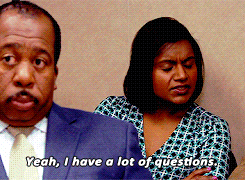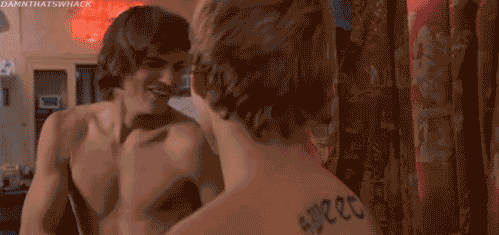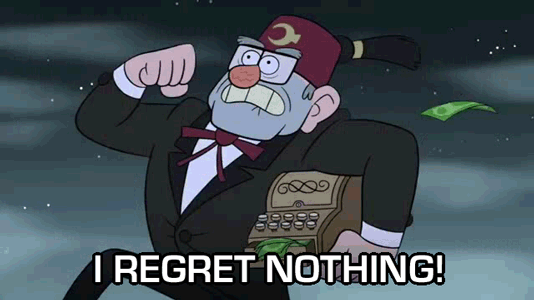--Originally published at Semana i – Miss F.
Let’s start with a small summary of my morning today. I woke up super late (because I fell asleep very late) and ran to put on my clothes and get ready for today. However, when I was about to open the door and blast out, someone rang the doorbell. I knew no one was arriving this morning, so I decided to go back up and see who was outside through a window. It was a white truck with no company logo on it. I called my house mates to ask if we were expecting anyone and they said no. With all this data, I decided to wait until they left to leave the house. When they finally did, I saw that they left a piece of paper that said “We are your internet provider, we came to install your internet but no one was home, please call this number”. The weird part about this is that, as you probably read in my part 3 & 4 blog post, they did that two days ago. It might have been just a confusion from the company, but either way I decided to not open the door and keep myself safe. Be aware of your surroundings.

Today we talked to Rebecca Hogue and Helen DeWaard. The dynamic of this was people asking questions and them answering from their points of views. Helen mentioned that you can share personal information but it can be public, private or a combination of the two. For instance, you can share a picture of your living room, but not tell where in the world you live. This way you share a bit more about yourself but not enough to be exposed to dangerous things. Being vulnerable on the internet is also learning and opening yourself to opportunities and new experiences.
There was a fantastic question about people who commit suicide due to being teased on the internet and their private information, pictures and/or videos being leaked. Rebecca mentioned that Google changed their policies and if you report there’s unauthorized videos of you, they can actually not index them on their browser so it won’t appear to curious people that look for it. She said that if there’s things on the internet that you don’t want people to see, you should create more content! Exposing yourself the way you want to be exposed. However this takes at least 6 months to work. Helen mentioned that you should use your resources wisely, if you see something that you don’t approve, speak up. Being brave is vital these days.
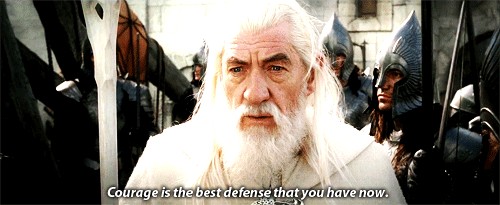
Another topic that was talked about was the power of blogging. People can tear apart any business by writing a bad review on their blog and spreading the word. While it can be great to get feedback from your clients, there might be someone who just doesn’t like you and gives a terrible review. There isn’t much to do about this but understanding that your words have an impact in real life.
“If you don’t create a digital identity, one will be created for you”. This was said by Rebecca and is, in my opinion, the most important thing of this course. Having a digital identity in this day and age should be like having a birth certificate. It shows the world you exist and who you are. The cool thing is that, both IRL and virtually, you can decide who you want to be and the image you give of yourself to others. Many people choose to have alter egos for themselves on the internet (I know a couple of them) and I think it’s brilliant. This allows you to explore a different phase of you and share it with those who like similar things. I have the itch to do something like it, but I haven’t landed a concept I’m comfortable and happy with. If I ever do, I’ll let you know.
This post ends my experience as an intruder in a digital identity course. I want to thank Ken Bauer for allowing me to be here this whole week and also I want to thank you, my readers for not thinking “this is lame content” and not leaving any hate comments on my blog, hahaha. Seriously, though, I appreciate you all for reading me. As for this blog, it will return to its normal information security and hacking content.
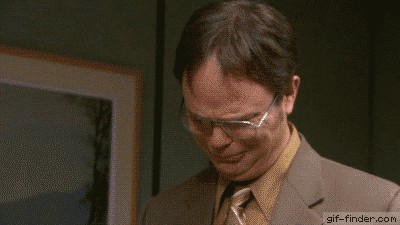
All gifs were obtained from giphy.com.



 I spent my morning waiting for the internet people to arrive and later on I geeked out on my Wireless Network course❤. I literally had Amy’s look the whole time during said course. And my boyfriend, of course, had Sheldon’s look…
I spent my morning waiting for the internet people to arrive and later on I geeked out on my Wireless Network course❤. I literally had Amy’s look the whole time during said course. And my boyfriend, of course, had Sheldon’s look…


